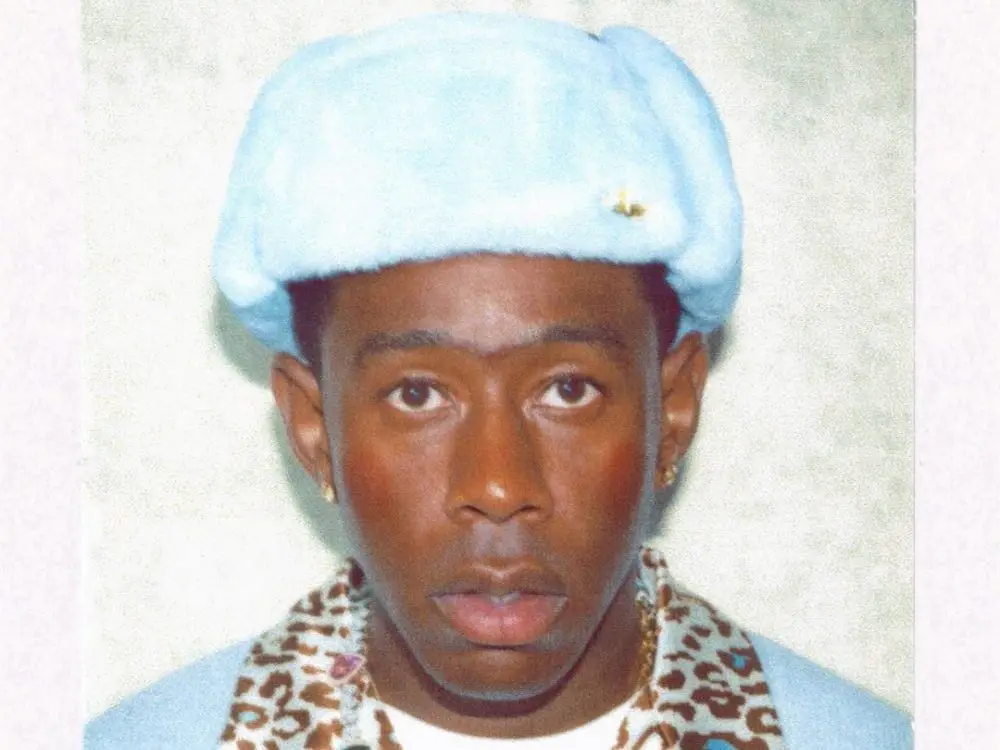Tyler, the Creator’s new album, “Call Me If You Get Lost,” follows his Grammy-winning 2019 album, “Igor,” a stunning grower headlined by expansive synths, introspective lyrics and a tight, unified theme of heartbreak and lost love. 2021’s “Call Me If You Get Lost” is centered around similar themes of loss and romantic yearning. However, it is a more sonically diverse album inspired less by a singular thematic through-line and more by the events of a chaotic year marred by a global pandemic, racial injustice and (for Tyler) more heartbreak.
Opening brashly, “Call Me If You Get Lost” focuses on a specific failed relationship that is highly reminiscent of the love triangle described in “Igor.” Rather than sticking solely to this subject, however, Tyler floats in and out of the narrative arc of the entanglement, zig-zagging between brash expressions of wealth and power and confessions of his struggles with a checkered past, distressing present and uncertain future.
Songs such as the standout tracks “Massa” and “Corso” split the difference between the two sentiments. On first listen, they come off as flex-tracks, with lines such as: “Pull up in that, uh, whatchamacallit? / Played a couple demos at Madison Square Garden / And tell them motherf—ers at Sony I’m not callin’ / I’m plottin’ on a billi, chilly in my garden” or “Yeah, I purchase more wheels when I feel like I’m third-wheelin / My favorite part of the double R is the bird ceilin’.” These songs soon reveal themselves to be covers for insecurity when inspected more closely.
Flashes of reality seen through the bravado produce some of the best lines in the album, such as in the juxtaposition of the opening line of a “Corso” verse, “Look, tried to take somebody bitch ’cause I’m a bad person,” and the mumbled closing line, “I don’t even like using the word ‘bitch’ / It just sounded cool.” This is also seen in the chorus of “Massa”: “Massa couldn’t catch me, my legs longer than a bitch / Got too much self-respect, I wash my hands ‘fore I piss / They try to talk me up but I keep short like Caesar / Eyes open if I pray ’cause I can’t trust God either.” Although Tyler is a lyrical menace, in between all of the shock and awe, he still uses derogatory language because he’s hurt and lost, and he’s still keeping his eyes open during prayers to hide from God.
The album turns by the 10th song. On the track “Sweet / I Thought You Wanted to Dance,” Tyler takes a melodic 10-minute, two-part song to open up completely, asking: “What makes you think / I’m not in love? / How could you know / What’s best for us? / Why am I here / Standing alone?” Although he still bounces between bravado and intimacy through the end of the album, from here on out the juxtapositions are more apparent, and by the penultimate track, Tyler is ready for a full confession.
On the gripping eight-minute track that acts as the narrative climax of the album, “Wilshire,” Tyler finally dives into the circumstances that he has been hinting at through the record, relaying the scenario that has left him heartbroken and grasping for solace in his Rolls Royces, new homes and fashion deals. Over the course of “Wilshire,” the beat and tempo of the song remain unchanged, but Tyler’s almost monotonous voice raps with increasing intensity as he tells the story of falling for a friend’s significant other, who he woos and loses over a short period of time. His changes of inflection and lyrical wittiness perfectly express the ecstasy of initial love and flirtation and the biting pain of rejection. Although it is long, the track is excellently paced and acts as an exceptional landing place for a somewhat eclectic tracklist.
On “Call Me If You Get Lost,” thematically, Tyler feels stuck. Just like on “Igor,” Tyler is stuck in another love triangle, and he’s the odd man out. He is confronted by his sexuality and comes out to himself and the world, but in the end, whether he has fallen for a man or a woman, and whether he’s finding solace in cars, clothes, cribs or hoes, Tyler is still alone. We’ve heard it before on tracks like “Gone, Gone / Thank You” or “911 / Mr. Lonely,” and we’re hearing it again on “Wilshire.” “Call Me When You Get Lost” feels thematically stagnant, but not because Tyler isn’t musically adapting, and not because he’s unable to express the feelings he’s experiencing — this album feels stagnant because Tyler himself feels that way. Everything is thriving except his relationships.
On the interlude track “Blessed,” Tyler expresses this perfectly: “Golf Wang’s doin’ amazing, might open up another store / le FLEUR is goin’ insane, smell good, nail polish / Converse, Gucci / Camp Flog Gnaw one of the best festivals / I’m healthy, my skin glowin’, my friends healthy / I’m f—in’ who, what, when, where.” He is blossoming, but at the end of the list, he says: “I done fell in love and th-th-thе— / The only flaw is my f—in’ hair won’t grow.” Notice: When he says he fell in love, he stumbles. The flaw is that he fell in love and nothing came of it — again.
The interlude ends with the line, “Come get lost with me, man, come, come, come see the world / When you, when you really get out there, call me, I’ll be there.” When he says “Call Me If You Get Lost,” he is not offering a hand to someone in need; he’s waiting for someone to get lost with him, to call him to come along and see the world.
Although at times it feels stuck and there are duds — like single “Lumberjack” or the decision to let “Sweet / I Thought You Wanted to Dance” run for 10 minutes without as much meaningful direction as “Wilshire” — “Call Me When You Get Lost” feels less like a revolution and more like a step in a good direction. It expands from the single-mindedness of “Igor,” speaking to social justice issues (see “Manifesto”) and struggling with authority (see “Massa”) while expressing a theme not only through direct expression, but through nuance and misdirection. Although Tyler is moving forward, he sometimes feels stagnant, as many others have over the past year.
Even if it may not be the Grammy-winning, critically acclaimed fan favorite that “Igor” was, or the paradigm-shifting coming-out album that was “Flower Boy,” “Call Me When You Get Lost” is an album for the moment, obsessing over travel, tying to failed relationships, languishing in some ways and thriving in others, and sounding incredible through it all.

















